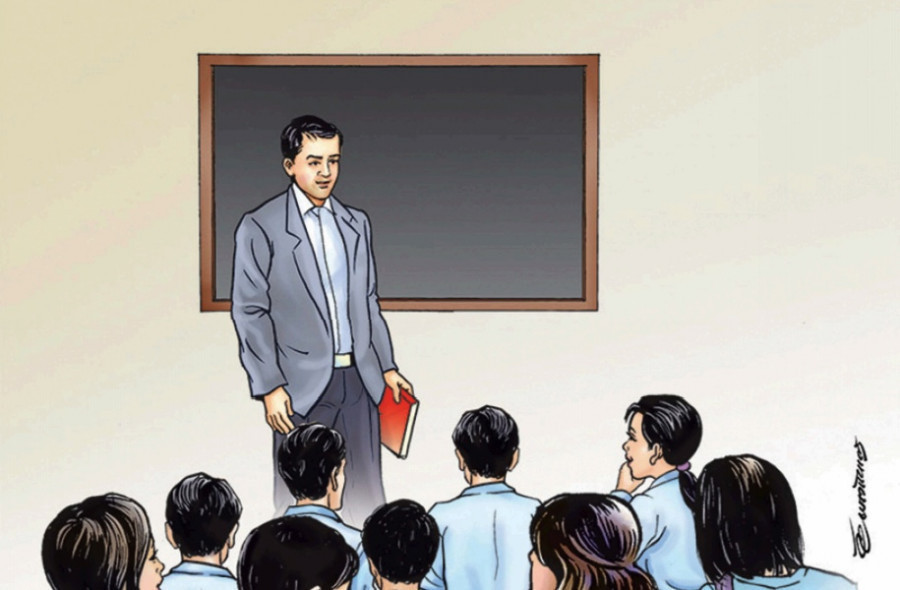Editorial
On the right track
Eliminating partisan politics from educational spaces could greatly improve the quality of education.
The Ministry of Education has started work on cracking down on university and school-level teachers and staff actively involved in political activities. Sumana Shrestha, the Minister of Education, sounds committed to eliminating party-based partisan politics from educational spaces. This is a step in the right direction, and Shrestha deserves full support from political parties and educational institutions. As we struggle to improve the quality of education in our schools and universities, a long-due initiative against partisan politics in such institutions comes as a big relief.
For far too long, Nepal’s educational spaces have been the playground for political parties to expand their cadre base. Almost every major party has a fraternal organisation in schools and universities, and teachers are often seen spending time in political rallies and meetings rather than in classrooms. This is starkly evident in the general conventions and congresses of the political parties. The Nepali Congress general convention in December 2021 saw the attendance of as many as 263 school teachers and staff. The CPN-UML’s general convention in November of the same year had the presence of at least dozens of school teachers and staff. What’s more, teachers and staff have been found to be contesting local-level elections in the past, which is not just illegal but also morally reprehensible.
The ministry has roped in the Election Commission of Nepal to help identify the teachers and staff active in party politics. Previous such attempts by the commission have not proved successful, with both the educational institutions and the parties refusing to cooperate. This will indeed be a challenge this time, too, as the party-affiliated teachers and staff do not always appear on the paper trail.
Moreover, the very idea of punishing teachers and staff engaged in politics is certain to stumble upon ethical dilemmas. School and university teachers and staff have historically been the backbone of dissent and democracy in Nepal. The teachers’ strikes of 1979 and 1981 were instrumental in raising awareness about the atrocities of the Panchayat rule, apart from establishing the rights of teachers. During those days, too, the government had termed their activities illegal and punishable by law. Teachers across the country were punished for participating in political activities. But that was a necessary participation, guided by the zeal for establishing a democratic society, apart from improving the educational system and the working conditions of the teachers.
The ministry should also be mindful of the distinction between ideological inclination and party affiliation. As thinking individuals of a democratic society, university and school teachers and staff have the right to adhere to, even profess, political ideologies. In a party-centric democratic political system, it is impossible not to favour one or the other political party, even if purely on ideological terms. Teachers, staff, or anyone, for that matter, cannot even be chastised, let alone punished, for exercising their rights to profess their ideological interests. So the ministry must first come up with clear guidelines on what constitutes partisan politics. A failure to do so might end up turning the sanitisation campaign into a tool for a powerful few to punish teachers and staff simply for believing in certain ideologies.




 10.12°C Kathmandu
10.12°C Kathmandu













